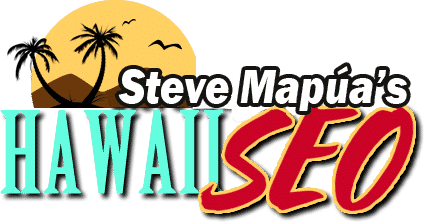Hawaii SEO – All About SEO
What is SEO?
SEO stands for ‘Search Engine Optimization’. It concentrates on improving the rankings of organic search results. When I say organic, it means no payment is involved. Major search engines like Google and Bing show and rank web pages and other content based on what is most relevant to the user.
In SEO, you are optimizing your web pages so that they will rank higher in search results. Aside from higher ranking, you are also gaining more traffic for your website. When you use search engines like Google and Bing, they will provide you with long list of links that can help you. These links, or search results, are ranked according to algorithm.
SEO has three categories: on-page SEO, off-page SEO, and technical SEO. Read below to know more about each category:
On-page SEO factors
When we say on-page SEO factors, these are things you can influence within your actual website. The ranking factors in this category is mostly within the publisher’s control. On-page SEO is where you serve the needs of your web visitors. Thus, your web pages should be search engine friendly.
When you decide on the title of the article, keywords, or anything related to your web pages, you should keep in mind the needs of your target audience. When you provide necessary information, your site becomes more relevant resulting in higher rankings. Aside from that, you are also helping search engine crawlers navigate your site and help users find the information they are searching for.
Off-page SEO factors
Keep in mind that search engines don’t solely evaluate based on what is visible to the users. Aside from what is on the page, search engines also evaluate the site’s reputation, the quality of a site’s backlinks, many other factors to be able to deliver the most relevant results. Off-page SEO factors also include links form other websites, social media attention, and other marketing strategies outside your actual website.
The most important thing in these off-page factors is the number and quality of links they point towards your website. The more significant sites that link to your own site, the higher your rankings will be. Even though these factors aren’t easy to control compared to on-page SEO factors, they still must be taken into account when you are optimizing your website.
Technical SEO
Last but not the least is Technical SEO. It is referred to as “technical” because it has nothing to do with the actual content of the website. In technical SEO, it aims to optimize the overall structure of a website. With technical SEO, you are actually helping search engines access, crawl, interpret and index your website without any difficulties. Here are some practices to improve your site’s technical SEO:
• Constructing 404 Pages – A 404 page is also known as an “error page” or “Page Not Found” page. You can actually optimize your technical SEO through your 404 pages. You can read more about crafting 404 pages in All About 404 Pages (Part 1) and All About 404 Pages (Part 2).
• Improving Website Speed – No one likes slow websites. By improving your website speed, you are also improving your site’s technical SEO. Read more about how you can improve your site’s speed on Ways to Speed Up Your WordPress Site (Part 1) and Ways to Speed Up Your WordPress Site (Part 2).
In conclusion, SEO is the practice of optimizing websites to make them reach a high position in search results. You will get many benefits when you practice sustainable SEO. Next, I will talk about why having SEO is important. If you are interested about improving user experience, refer to Tips on Improving User Experience and Increasing Conversions.

